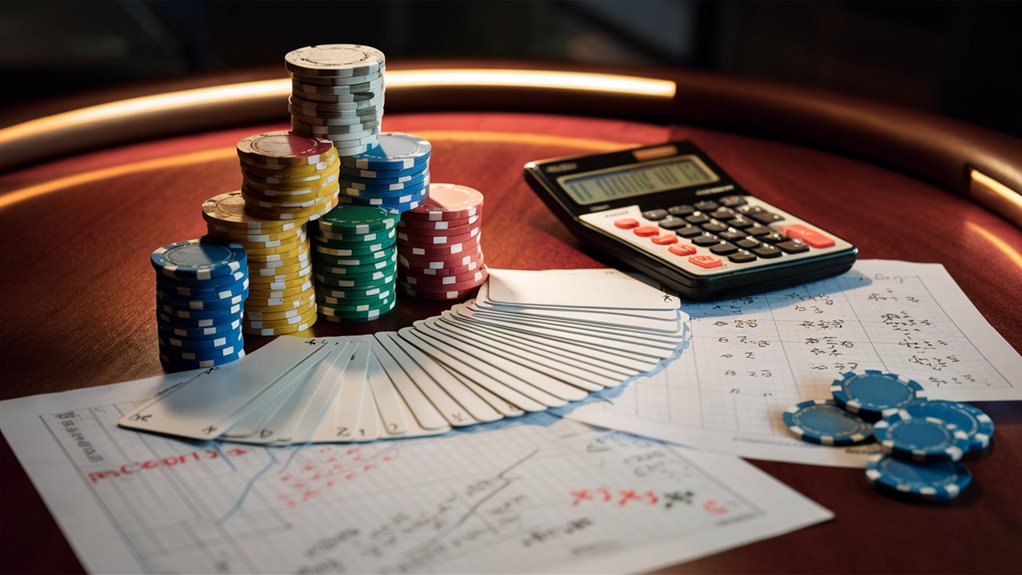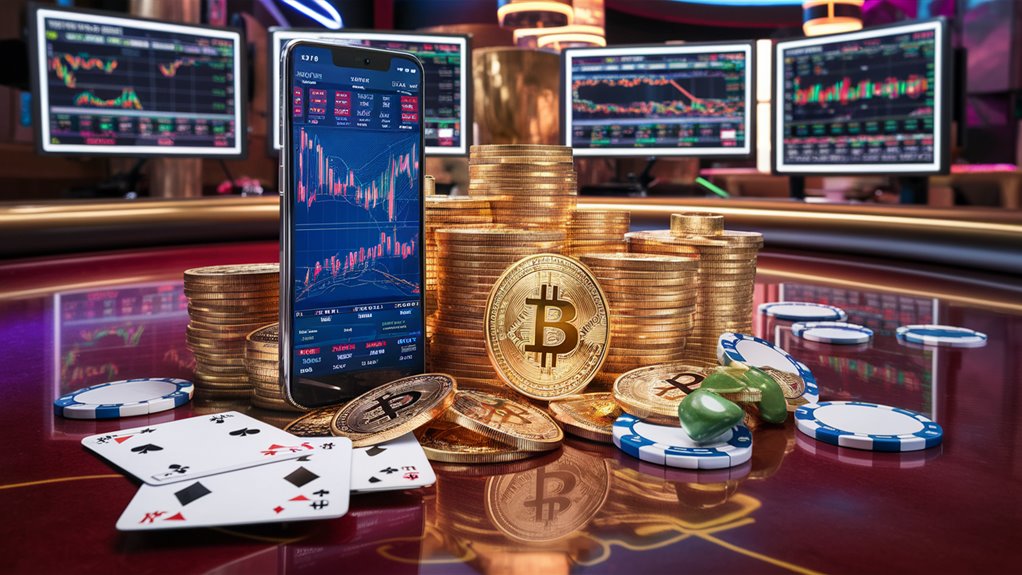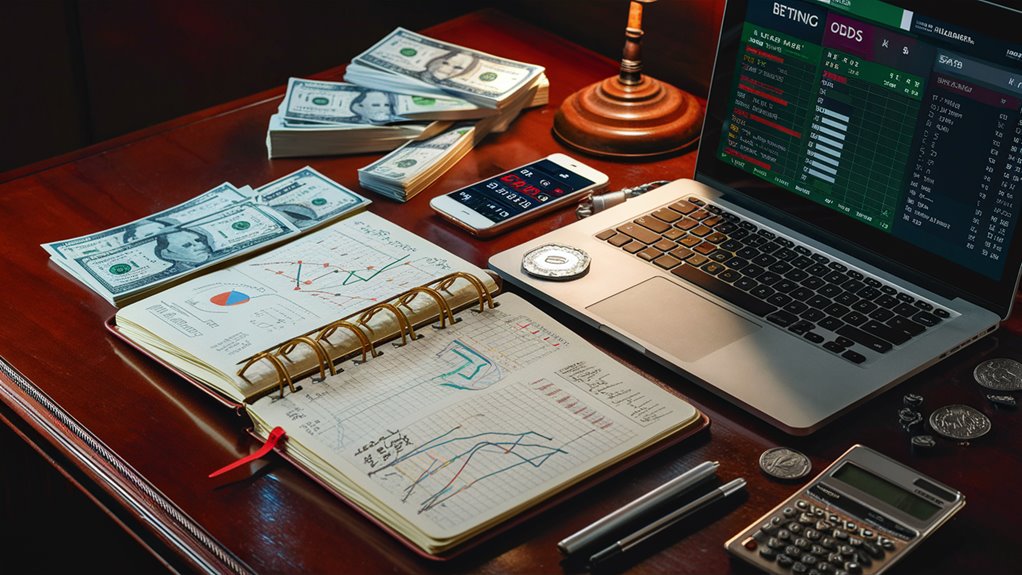Why People Gamble: A Look Into Their Minds
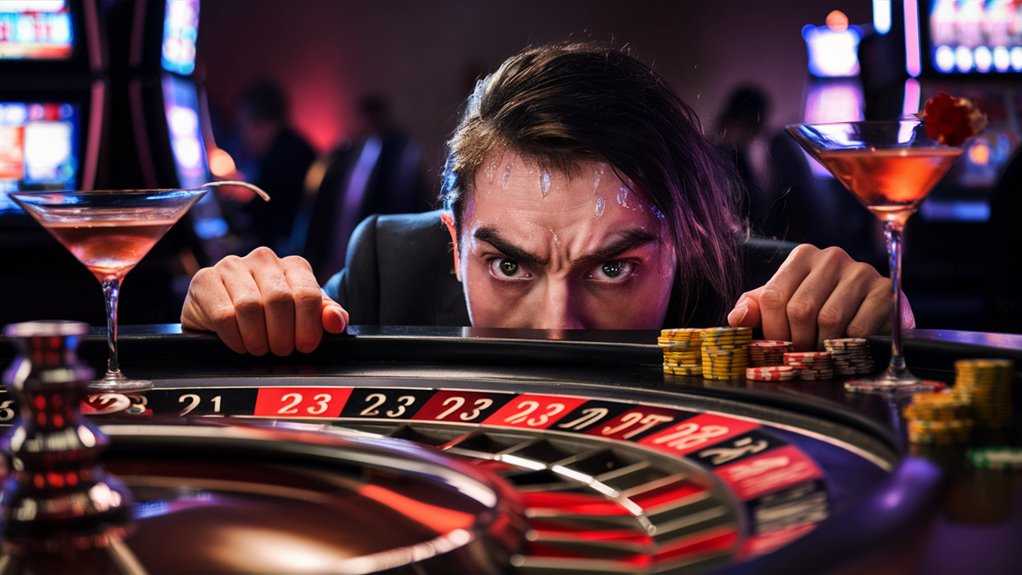
Exploring why people gamble reveals its strong grip. The brain’s joy spot plays a big part, making it very tempting for many.
Brain Link and Good Feel
Gambling makes our brains send out dopamine, a feel-good stuff. This rush gives a great thrill and hope, just like other good highs. Brain paths connect these good feels to gambling, making a hard cycle to break.
Almost Wins and Brain Games
Near wins in gambling set off brain boosts just like real wins, keeping players going even when they lose. This shows how brain games with rewards can twist smart choices, changing how we look at risks and luck.
Social and Fun Draws
Gambling also pulls folks for social reasons and the need for fun or a break from stress. Things like pals, the vibe of the spot, and thrill needs push these urges, making them hard to fight.
Risk Views and Odds
Brain slips on gambling can blur how we see risks. The brain’s fun spot can twist our views of possible bad results, betting more even as losses grow. This changed view of risk is key to why gambling sticks.
Knowing these links between mind and feels highlights why understanding brain and emotional ties are vital to break free from gambling’s hold. Seeing these deep ties and their pull on choices is important.
Know Your Brain’s Joy Triggers in Gambling
Dopamine’s Role in Gambling
Dopamine, a key player in the brain’s joy acts, is a big reason why gambling draws so strongly. This brain signal starts a cycle of hope and joy that keeps you gambling.
The brain sends it out not just at wins but also in the waiting phase before you know if you win.
The Power of Unsure Wins
Uncertain wins boost brain joy links through no-set win ways. This unsure feel boosts dopamine levels, copying deep-set reward roads used in old survival acts like hunting.
The brain can’t tell this unsure good feel from bad gambling ones, trapping you deeply.
The Brain’s Gambling Link
Main Points:
- Starting a bet sets off dopamine
- Waiting boosts brain links
- Win or lose ties back to acts
- Memory sticks to these links
- Outside hints start gambling wants
The brain links gambling hints to happy brain acts, making deep brain roads.
These brain roads start strong wants when faced with gambling hints, making it tough to say no.
The mix of dopamine talk and pleasure training builds a cycle that locks in the gambling need.
Gambling Brain Games: The Chase and Near Wins
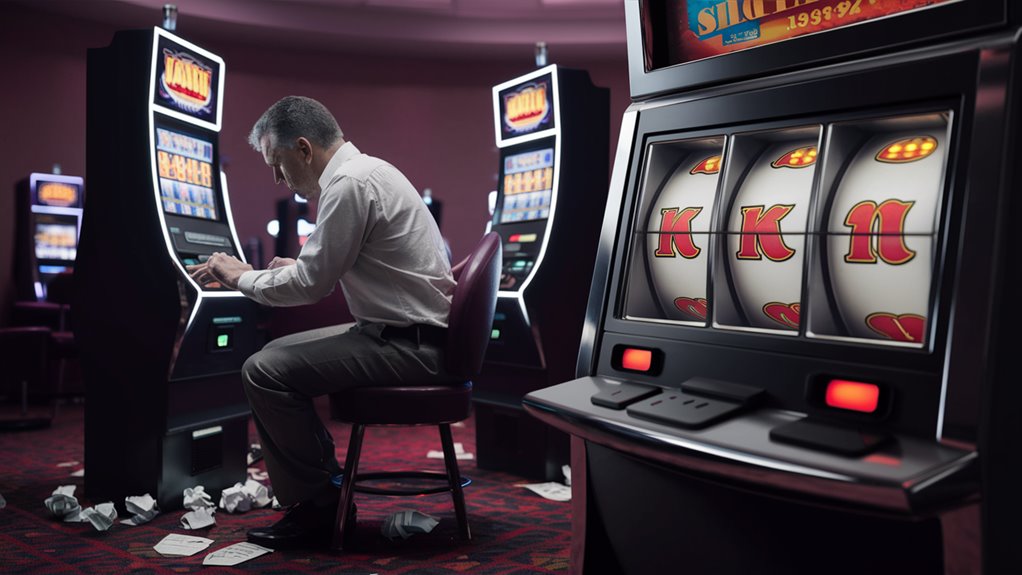
The Mind Trap of Chasing Losses
Chasing losses is a big brain game in gambling. It drives you to keep betting to try to get back what’s lost.
The brain’s hate for losing starts a bad loop where more losses push you to bet even bigger.
The Pull of Near Wins
Near wins light up the brain much like full wins do. These close tries, like almost getting a win line in slots, make you feel in charge and almost there.
Even though each bet is its own shot, near wins wrongly make you think a win is just next.
Adding Mind Pressures
The blend of chasing losses and near wins forms a deep mind trap. When you almost win then lose, the urge to chase losses grows.
This mind game keeps you in play:
- Dopamine from near wins
- More push to get back losses
- Misguided feel of getting better
- Big hopes for the next win
These forces work together to stretch gambling much more, as you think the next bet will bring the big win.
Getting Free
Knowing these mind games helps in picking smarter gambling moves. Often near wins and loss chasing can cause:
- Twisted view of risks
- Poor choices
- More money lost
- Stronger need ties
Seeing these cycles helps to make plans to stop them and push for safer gambling moves.
How Society and World Views Mix with Gambling
Seeing How Society Shapes Gambling
Social and world pulls really shape how gambling acts and views change around the world.
The ok of gambling changes a lot across the world, from big parts of events to big no-nos.
Peer and Place Pulls
Peer push and the place’s vibe are big pulls in betting.
Studies show more gambling happens around pals who bet 메이저사이트
Feeling part of it often leads to bigger and more bets, especially in group spots.
Pics and Ads
Media show and gambling ads color how we see it.
Ads link gambling with:
- Fancy life
- High place in society
- Fun and thrills
- Top style and glam life
World Views and Gambling Acts
Different places hold various world views on gambling, shaped by:
- Old money-making thoughts
- platforms soared to unprecedented
- Looks at risks
- Beliefs in luck and what’s meant to be
- Religious looks at taking chances
- Group versus one views
These world parts heavily sway which types of gambling are ok and which are looked down on by society or law.
Why Bet to Get Away From Bad Feels: A Deeper Look
The Mind Side of Betting to Dodge Bad Emotions
Gambling need often starts as a mind answer to life’s hard bits, a way to dodge bad feels.
The brain’s joy from betting—big dopamine and adrenaline bursts—gives a quick shift from life’s tough parts.
